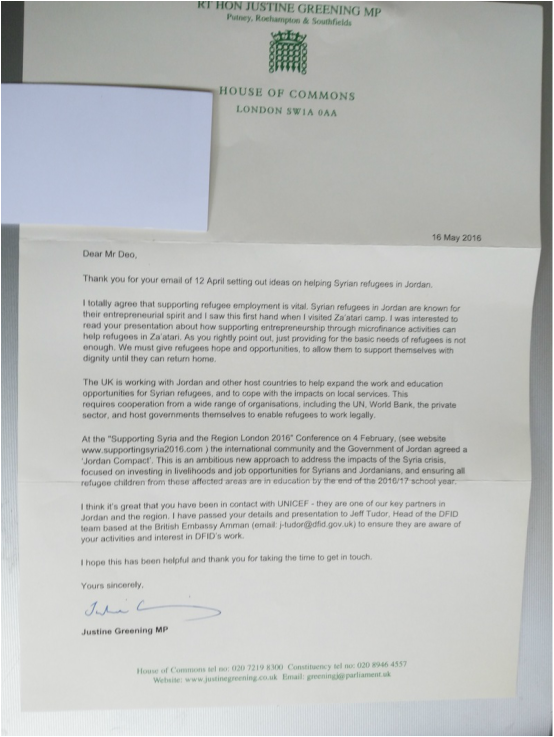|
I was finishing off on Friday. An email came in from startup bootcamp. I use their hackathons to test out new ideas all the time. They highlighted a Fintech Jam for Good event being sponsored by UNICEF. It clicked this was it. This event would be ideal for us. We felt this was just what we needed. It would allow us to use fintech to help organise The Swat Valley Guild - The SVG. We could build a team and use open innovation. We were using Paul Collier's thought as a base at The SVG. He highlights how job creation is key to post-conflict regeneration. We felt supporting existing local businesses to scale up would help regenerate the Swat region. So the next stage was to look a little more on ‘the how’ side. We settled on the model of a Guild. We felt this was the best way to preserve the heritage. To generate rural employment. And, help over 120,000 families re-settle back into their way of life. They had to be evacuated in a recent counterinsurgency operation. The market research supported us in understanding the long-term vision and mission. The UK International Development Secretary had already helped highlight some potential funding options. She also touched on the various bodies who may be able to help from a business perspective. For example, Business Call to Action . This UN body gave us clarity on what was needed to enter their eco system. Yet, we still felt the need for validation from industry. I was used to hacks - they tend to be techy centric. So coming across a Jam was great. It is a spin-off from the tech hack. It focuses on generating viable business concepts under a theme. In this case, the twin themes were fintech and social value. As events they are intensive. They take up the entire weekend - literally. You start on Friday evening and you pitch your solution on the Sunday. It is great fun. The sponsors always bribe you with good food ☺ I pitched The SVG. Some attendees felt there was something to what we were looking to do. We formed the team on the Friday. On Saturday, the grind started. We went through all the tech platform solutions we could find. We tried to see how we could use tech in the context of The SVG we were designing. For example, We looked at how mobile payment solutions would help lower costs. How it would also reduce human error in payments across a geographically dispersed population. As the day progressed and we gradually worked our way through all the options available to us. It became obvious the originality factor would be limited if we carried on like this. The idea was to come up with something more than just automating pre existing processes. So about 7pm on Saturday, we decided to revisit the basics. The mentors we were working with would articulate our state differently - I am sure ☺ We went back to basics and looked at the brief of the Infosys Challenge again. We felt the refugees crisis would be a worthy topic to focus on. So the next stage was to see how we could apply the knowledge we had generated to support them. We looked at the constraints we were working under and how we could use them support them. We touched on refugees in refugee camps. It clicked - eureka moment for us ! Dr. Who meets Syrian Refugees in Jordan with UNHCRWow ! Here you have a collection of people living in informal cities. There is a refugee camp in Jordan that is the 4th largest city by population - 83,000 by a recent count. The UN does provide everyone with the basics. 3 years of living on the basics is tough at the best of times. So the refugees there are starting to self organise. They are taking care of themselves. They are setting up businesses of their own to provide for themselves beyond what the UN has to offer. So what could we do to help them generate employment and opportunity. To help them take responsibility for their own futures using fintech. We felt entrepreneurship was a great tool for this. Across the world there is a growing appreciation of how entrepreneurship can support society. The SVG itself was a product of such thought, so why not here. At this point it all suddenly started to make sense. There was clarity. We came up with the concept of using crowdfunding to support pre existing micro businesses within refugee camps. These micro businesses need funding to scale. Scaling means employing more people. This would then generate opportunity for both the entrepreneurs and other refugees. It would give them a sense of normality. It would help them re integrate into the global community. It also has the potential of reducing religious radicalisation. Paul Collier’s school of thought suggests this. Once we were in this zone everything just fell in place. You could tell it was an execution only environment from here on. We divided up the work between us and then focused on the timelines. We organised a pitch, rehearsed and delivered it. Turns out the judges liked it so much they gave us top prize in our category. "I opened the shop to try to support my family because there are eight of us here" - Mr Harib
|

 RSS Feed
RSS Feed